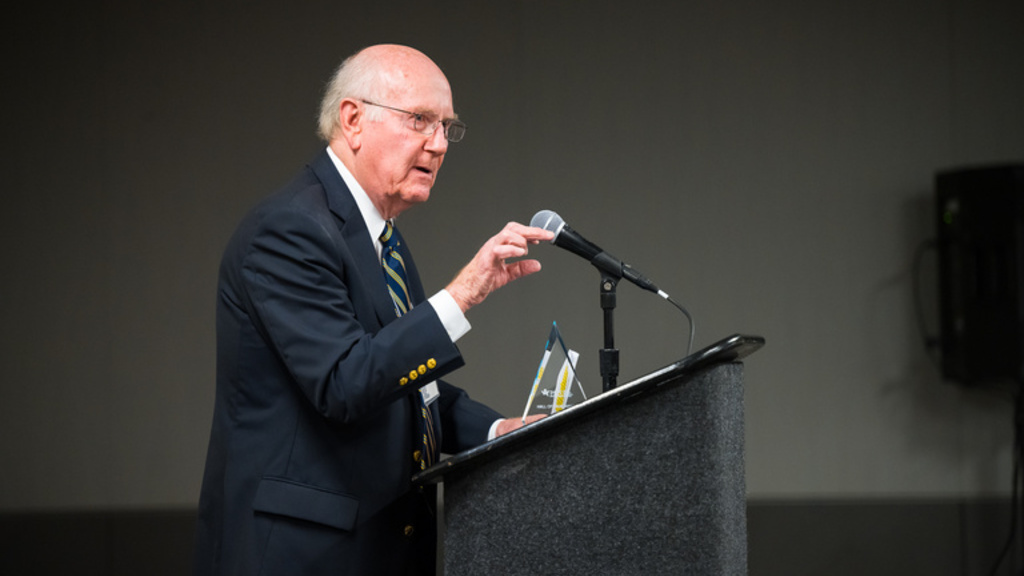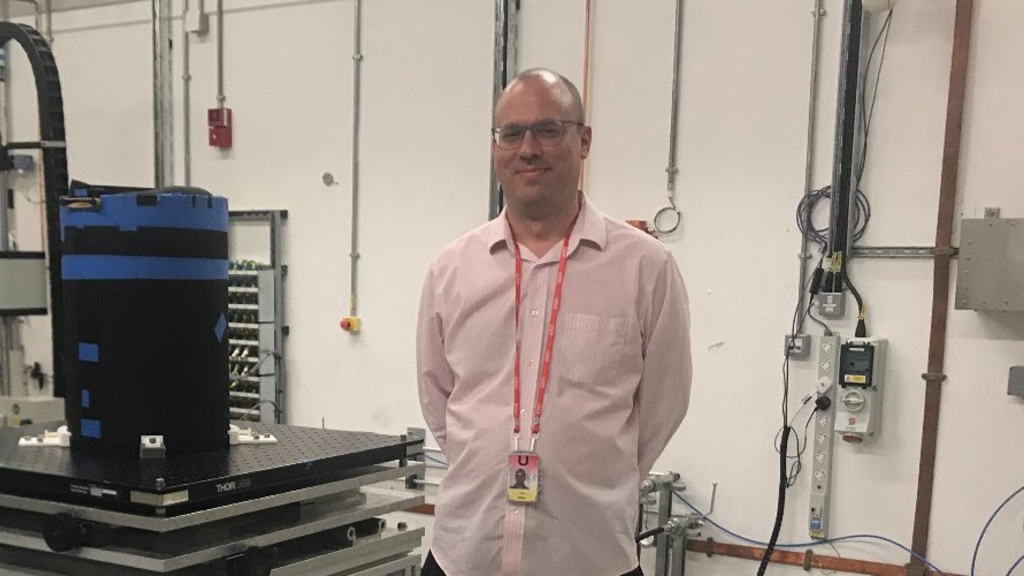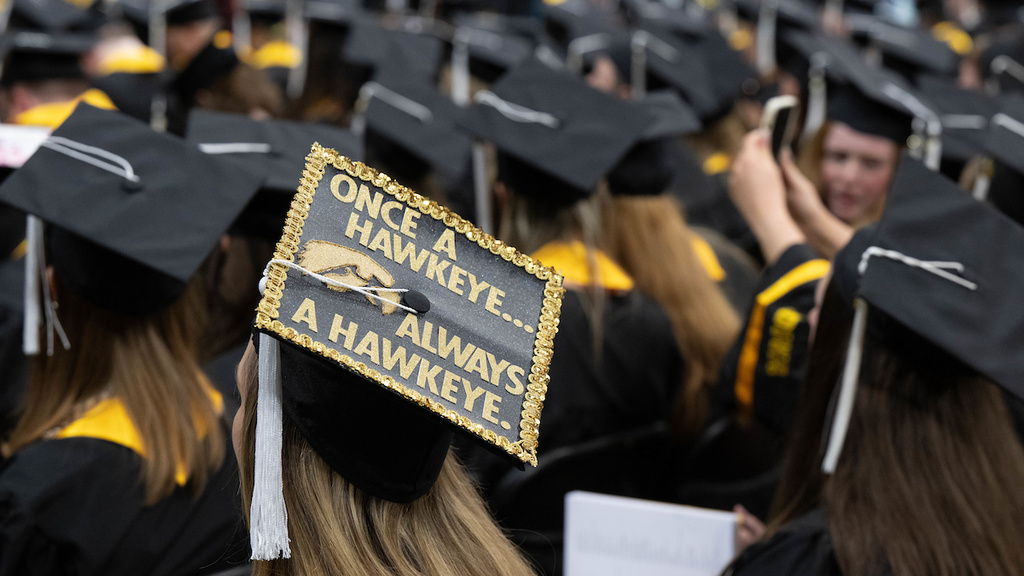News

Department of Chemistry research team publishes exceptional findings in prestigious chemistry journal
Tuesday, December 23, 2025
Associate professor Scott Daly and his team of students have been honing their X-ray research methods for several years. Now, they have published their findings in the journal Chemical Science.

2025 Fall Commencement photo recap from CLAS
Tuesday, December 23, 2025
Fall 2025 commencement ceremonies brought together graduates, families, and faculty to celebrate the achievements of College of Liberal Arts and Sciences students.

Foundational skills taught in general education rhetoric course build student confidence and community
Tuesday, December 23, 2025
As one of the first classes required for undergraduate UI students, the general education rhetoric course requirement paves the way for students to enhance important transferable skills.

A Hawkeye health advocate: Thomas Loughrey’s journey in physical education
Tuesday, December 23, 2025
Guided by Iowa training and national standards work, Loughrey partners with Missouri’s education department to lead whole-school, public health efforts that strengthen health and physical education and boost student connection statewide.

Bookshelf Picks: new releases from University of Iowa authors
Tuesday, December 23, 2025
The article highlights recent must-read books by University of Iowa-affiliated authors, showcasing a diverse range of literary work from members of the Writing University and other Hawkeye writers. Featured titles include memoirs, true crime, children’s fiction, and novels by Iowa-connected authors.

Health, sport, and human physiology: a Hawkeye shapes health education nationwide
Tuesday, December 23, 2025
Thomas J. Loughrey (MA ’69, PhD ’74) credits his Iowa City education with shaping a career grounded in precision, integrity, and public service, fostered by a rigorous, evidence-based, and highly mentored academic environment in what is now the Department of Health, Sport, and Human Physiology.

CLAS administrator prepares for new role in Cinematic Arts after a decade of cross-department leadership
Monday, December 22, 2025
After supporting seven academic units, longtime administrator Lindsay Vella marks 10 years at UI with a move to Cinematic Arts.

John F. Allen creates monetary awards for each performer in the University of Iowa’s 295-member band
Monday, December 22, 2025
University of Iowa alumnus John F. Allen’s love of music inspired a transformational gift supporting every member of the Hawkeye Marching Band.

Bridging ancient texts and modern technology: Paul Dilley’s transformative impact on Religious Studies and Classics at Iowa
Monday, December 22, 2025
As the University of Iowa looks toward celebrating the 100-year anniversary of its Religious Studies department in 2026, Associate Professor and DEO, Paul Dilley, stands at the intersection of tradition and innovation. A scholar of ancient Mediterranean religions, early Christianity, and digital humanities, Dilley exemplifies the interdisciplinary spirit that defines the College of Liberal Arts and Sciences.

CLAS students graduating with distinction and honors
Friday, December 19, 2025
The College of Liberal Arts and Sciences is pleased to recognize the scholarship and achievement of our students graduating in December 2025 with distinction and honors.
Pagination